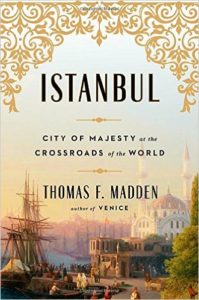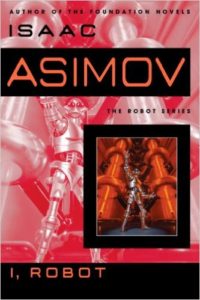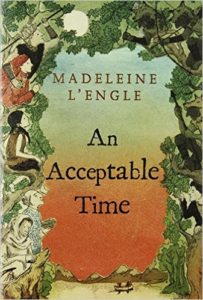This series just gets better with each book! The depth and complexity of Ben Aaronovitch’s mystical London really comes into its own here, as we delve deeper into the overarching plot with the reveal of The Faceless Man’s true identity (whom I figured out perhaps half a beat before Mr Aaronovitch intended for the reader to: and kudos again to him for writing such a fine mystery and unmasking.) I admit to having forgotten details of the first five novels — and in my defense, I’d completely forgotten that I’d even requested that the DCPL order this book. I can’t have been the only one, tho, as at checkout, I saw that the line for this book was 7 deep for 2 copies — but a quick glance at my Goodreads reviews refreshed me to the necessities. This, I suppose, is where I lament my lack of time to re-read the novels, but that’s such a First World Problem, I can’t even.
Anyway, Peter Grant owes one to Lady Ty, the genius loci (a.k.a goddess) of the River Tyburn, for her help in a previous novel. She calls her marker in one day, needing him to make sure that her teenage daughter, Olivia, is kept out of an investigation into a drug overdose in a fancy apartment building. Of course, Olivia is uncooperative with either Peter or her mother’s plans, and as Peter investigates further, he finds his path crossing once more with The Faceless Man’s, and so with his former partner’s, Leslie’s. We’re also introduced to Lady Helena, self-proclaimed witch, via her practitioner daughter, who has plenty of secrets of her own. And Special Agent Kimberly Russell of the FBI also has pertinent information for Peter from across the pond.
There is a lot going on in this novel, and most of it won’t make sense if you haven’t read the rest of the series, which I highly recommend you do! Tho, since it’s so good for binge-reading, and gets more complex as it goes, I’m almost reluctant to recommend that you start reading it now instead of in one fell swoop when it finally wraps up. I’m already rather glumly expecting to have forgotten far too much before Book 7 comes out, so am hoping it hurries up and appears!
And so you know, this installment of the series was not only as clever and charming as its predecessors, but was also as refreshingly diverse, if not more so. As a brown Muslim person who’s traveled extensively, it was really, really nice to see accurate representations of real, every day people alongside all the magic and explosions. In fact, the only quibble I have with the authenticity of the book’s characters was in Kim’s dialog, which was waaaaaay too British. Otherwise, another stellar representation of diversity, especially in the way it noted the race of people Peter was meeting for the first time. The default setting in too much Western literature has always been “white,” so to have it noted each time was a refreshing reminder that that’s not how modern-day London is, or most metropoles any more.






